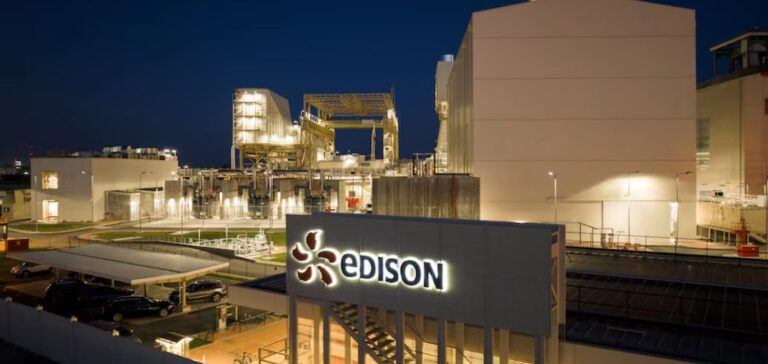Edison, EDF’s Italian subsidiary, has reached an agreement with gas network operator Snam for the sale of its gas storage division.
This transaction values the assets at around 560 million euros, rising to 630 million euros depending on future developments, including the outcome of an arbitration procedure on one of the assets.
A strategic turning point for Edison
Edison had sounded out market interest in its three gas storage sites in Italy last year.
The sale is part of the company’s strategic plan to develop renewable energies and maintain Italy’s security of gas supply through the development of green gas.
Edison CEO Nicola Monti says that this transaction enables Edison to pursue its strategic plan up to 2030, which focuses on the development of renewable energies and the security of Italy’s gas supply.
This initiative demonstrates the company’s commitment to energy transition and sustainability.
Strengthening energy resilience for Snam
Snam, controlled by the Italian government, already manages a large part of the country’s gas storage system, including strategic reserves.
This acquisition will increase its total capacity to around 18 billion cubic meters, including 4.5 billion cubic meters of strategic reserves.
Snam CEO Stefano Venier says the transaction will strengthen Snam’s industrial structure in the sector by integrating the assets into their business model, to the benefit of the energy resilience of the country’s system.
Snam hopes to achieve synergies through the integration of Edison’s sites, strengthening Italy’s stability and energy security.
Market analysis and future prospects
The transaction attracted the interest of several Italian and foreign investors, underlining the attractiveness of gas storage assets in times of energy uncertainty.
Large storage facilities enable countries to create a reserve to cope with peaks in consumption, particularly in winter.
Snam was advised by Rothschild and Société Générale, while Lazard supported Edison in this transaction.
This strategic sale marks an important step forward for both companies, in line with their respective development and energy resilience objectives.
The integration of these assets will enable Snam to strengthen its leading role in the Italian gas storage sector.






















